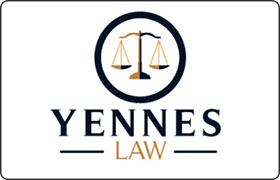Dover Real Estate Other Lawyer, Florida, page 2
Sponsored Law Firm
-
 x
x

Click For More Info:
-
Law Office of Adham Yennes
27709 FL-56 Unit 103 Wesley Chapel, FL 33543» view mapBankruptcy & Debt Law Proudly Serving Hillsborough County
You need an attorney with bankruptcy knowledge who will vigorously protect your rights and interests.
800-873-3840
Includes: Commercial Leasing, Commercial Real Estate, Condominiums, Conveyancing, Housing & Urban Development, Premises Liability, Residential Real Estate, Title Insurance
Daniela Estefany Mendez
Commercial Real Estate, Estate Planning, Criminal, Civil Rights
Status: In Good Standing
Rena Jade Upshaw-Frazier
Commercial Real Estate, Federal Trial Practice, Estate Planning, Business
Status: In Good Standing Licensed: 20 Years
Barry Ben Butler
Bankruptcy, Family Law, Criminal, Commercial Real Estate, Wills
Status: In Good Standing Licensed: 35 Years
Robert Michael De Loach
Commercial Real Estate, Federal Trial Practice, Federal Appellate Practice, Estate Planning
Status: In Good Standing Licensed: 37 Years
Dana Clark Kemper
Commercial Real Estate, Estate Planning, Elder Law
Status: In Good Standing Licensed: 17 Years
Anthony Emilio Britt
Civil Rights, Estate Planning, Workers' Compensation, Medical Malpractice, Premises Liability
Status: In Good Standing Licensed: 38 Years
Allison Jean Brandt
Car Accident, Insurance, Premises Liability, Social Security -- Disability, Mass Torts
Status: In Good Standing Licensed: 17 Years
Richard Francis Cipriano
Real Estate Other, Criminal, Civil Rights, Consumer Bankruptcy
Status: In Good Standing
Windy L. Wilkerson
Commercial Real Estate, Federal Trial Practice, Workers' Compensation, Personal Injury, Divorce & Family Law
Status: In Good Standing Licensed: 23 Years
Brice Zoecklein
Commercial Real Estate, Estate Planning, Insurance, Medical Malpractice
Status: In Good Standing
 Adham Yennes Wesley Chapel, FL
Adham Yennes Wesley Chapel, FL AboutLaw Office of Adham Yennes
AboutLaw Office of Adham Yennes Practice AreasExpertise
Practice AreasExpertise
